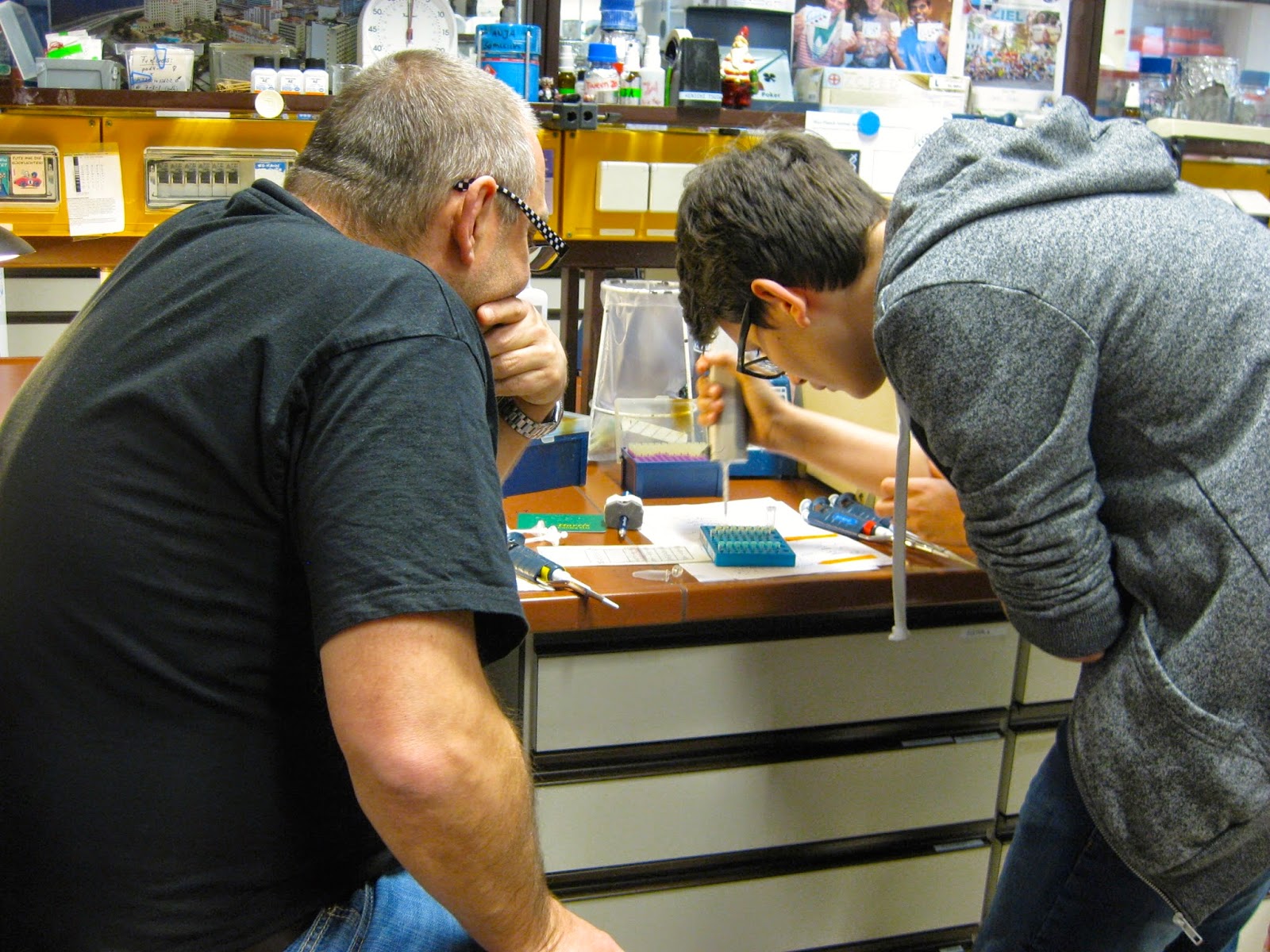Pipetting, DNA amplifying, genotyping and more!
Inspiration: This idea came into mind as I recognised similarities directly from our IB Biology course and the wide-range of things I had learned from working at the research institute in the summer of 2014. Just as I have done genetic fingerprinting and gene amplification there several times, my classmates themselves will get a chance to view how this is truly done (i.e. experiential learning) and not only from learning through pictures provided in a textbook.
Although I may have organised a larger scale school excursion before (i.e. the Grades 3 & 4 trip), this was certainly still a challenge since I had to organise this trip myself and make it a complete success for my classmates so they can enjoy practical biology at its best! With this CAS activity, I hoped to accomplish all eight of the Learning Outcomes!
To begin, I contacted my supervisor from the institute and informed him of my plan. Together we discussed all the possible activities we can do together to touch on the subtopics which we learned in school. Next, I explained to my Biology teacher, Ms Mutie, of the plan and then selected a date that best suits our school time-table, so that we are able to miss half a day of school for this productive trip. Since Ms Mutie accompanied us on the visit, she was therefore the most appropriate CAS supervisor for this activity.
 |
| Arrived by Mr Max Planck! |
After spending a total of 2 hours calling and planning, it was finally time for the trip on the 10th of February. The half-hour walk from our school to the institute in the late winter morning was very refreshing. Upon arrival, we were warmly greeted by my supervisor who brought us directly to the laboratory! There, we commenced with some pipetting exercises to learn how to use these highly accurate instruments used vigorously in research. We continued with the punching and making of FTA card samples and then together followed the protocol for the PCR mixture which would later be used for DNA amplification. All the while my classmates and Biology teacher were learning and asking questions and in fact so did I! There is always so much more to learn and it was exciting to be back in the lab once again!
 |
| Let's start pipetting |
 |
| Careful pipetting |
 |
| Vigorous pipetting |
 |
| Ms Mutie carefully handling a young Thale Cress plant |
Before taking a tour of the institute, we took a short break and allowed for snacks and warm beverages. Here, we discussed many curious issues about the research in the Max-Planck society, the ethical problems associated and also about global news in the world of scientific research.
 |
| Touring around... |
Two hours later, we returned to the lab with full stomachs from lunch and analysed our gel that had successfully gone through electrophoresis. We studied the samples and had further discussions about the knowledge constructed from this piece of information. Finally, the excursion has come to an end and we were thankful for all the new things we learned that half-day!
 |
| Ready for the PCR machine! |
 |
| Our gel electrophoresis results |
This entire trip was a complete success! My main objectives were met and all my friends had a brilliant time learning by doing - so did Ms Mutie! It was enjoyable to be in another environment outside of school campus and to have a new learning atmosphere. My supervisor did a fantastic job in teaching us and I am very thankful for all the patience and support he showed us!
Nonetheless I did encounter two difficulties through this activity…
- During school hours, attending classes means that I am unable to pick up the phone when needed. This was therefore a time management issue since my supervisor and I were to discuss the plan and time slots. In order not to repeat the same mistake I did previously when I called him during the wrong time, we e-mailed the times where we can exchange phone calls. This thus made things much easier for the both of us.
- Initially, the visit was to take place on the 17th December. Unfortunately, Ms Mutie had suddenly fell sick on this day and it was due to her absence that I had to make the sad cancellation! This honestly frustrated me and it was because I worked with all the careful planning, I completely oversaw the rise of an unexpected event! This was a lesson learned to be prepared for anything and never take anything for granted as we might never know the what could happen in the near future.
 |
| CIS IB Biology Class at the Institute! |
These were the weaknesses which I was able to overcome. I have learned so much from organising school trips and I believe I enjoy doing so. Hopefully there will be more chances in the future for more of such CAS activities!
 |
| A Numbers sheet to keep track of the hours spent altogether in this CAS activity |










No comments:
Post a Comment